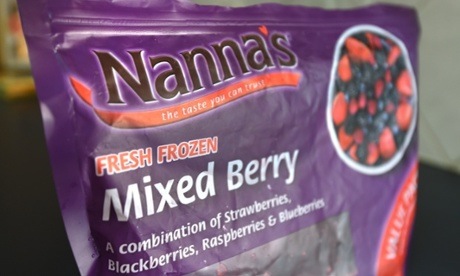
Australia’s Pacific free-trade deal could stand in the way of clear country-of-origin labelling being considered by the Abbott government in the wake of the hepatitis A outbreak linked to imported frozen berries.
Michael Moore of the Public Health Association said under the Trans-Pacific Partnership Agreement (TPPA) a foreign company may be able to sue the Australian government for loss of revenue as a result of Australian products being given an “unfair advantage”.
The agreement, which is being negotiated in secret, includes Australia, New Zealand, the US, Peru, Chile, Mexico, Canada, Singapore, Brunei, Malaysia, Vietnam and Japan. The deal would bring down the trade and legal barriers between member countries as well as their foreign corporations.
One of the most contentious issues in the trade agreement has been the investor state dispute settlement provision (ISDS), which grants foreign companies the right to sue signatory governments for interfering with business. A similar clause in a Hong Kong treaty has allowed Philip Morris International to take legal action against Australia over the plain packaging tobacco laws.
In the Washington Post this week, US Democrat senator Elizabeth Warren said the ISDS clauses would undermine national sovereignty, benefit multinational corporations and she specifically mentioned Australia.
“To encourage foreign investment in countries with weak legal systems, the United States and other nations began to include ISDS in trade agreements,” writes Warren.
“Those justifications don’t make sense anymore, if they ever did. Countries in the TPP are hardly emerging economies with weak legal systems. Australia and Japan have well-developed, well-respected legal systems, and multinational corporations navigate those systems every day, but ISDS would preempt their courts too.”
Moore said as a result of ISDS clauses, among other chapters, if a foreign company was forced to clearly label where a product was sourced and manufactured, and their sales dropped after the labelling was introduced, that company may be able to claim a loss of revenue under a future TPPA.
“The fact that the prime minister can stand there and say we should have compulsory front-of-pack labelling without talking about ramifications for Trans-Pacific Partnership Agreement, illustrates the problem of secrecy around TPPA,” said Moore.
“As best we can tell, the government is not going for an exemption on public health let alone on consumer-right-to-know grounds. If it was all public, we would know.”
Tony Abbott has established a ministerial taskforce – including industry minister Ian Macfarlane, trade minister Andrew Robb, assistant health minister Fiona Nash and agriculture minister Barnaby Joyce – to come up with a food labelling policy by the end of March.
Macfarlane and Joyce have spoken strongly in favour of clearer labelling since the disease outbreak. As of Friday 11am, there had been 21 confirmed cases of hepatitis A.
A spokesman for Robb said the government would not sign up to international agreements that would weaken Australia’s capacity to govern in its own interest.
“There is nothing being discussed in the TPP negotiations that will weaken Australia’s policies or regulations on food labelling, or diminish Australia’s ability to regulate food labelling,” the spokesman said.
“All parties negotiating the TPP will retain their current rights under the World Trade Organisation to make policy related to human health and safety.
“The Australian government is not intending to sign up to international agreements that would restrict Australia’s capacity to govern in our own interest – whether in the area of food safety, healthcare or any other regulated area of the economy.”
But Moore said Australians were being asked to trust the government without any proof of the text of the agreement. Civil rights groups, academics, public health advocates and the Greens have consistently asked the government to share the text before it commits to the trade deal. Labor’s Penny Wong has urged the government to update the parliament on the progress of the TPPA.
“We are being asked to trust the government and the public servants to negotiate every clause effectively without transparency,” said Moore.
“We would need to see a clause that specifically protected public health and consumer rights to have any real confidence.”
Moore described the resolution process for countries under the TPPA as “pseudo legal at best” as disputes would not be resolved in Australian courts but by international arbitration.
In the case of a foreign company challenging an Australian government regulation, resolution would proceed through a panel of three representatives – one from the Australian government, one from the foreign company and a third by agreement of the two parties or appointed by the World Trade Organization.
Warren characterised the process as allowing multinational companies to potentially pick up taxpayer-funded payouts from governments as a result of international arbitration panels without ever setting foot in domestic courts.
“ISDS could lead to gigantic fines, but it wouldn’t employ independent judges. Highly paid corporate lawyers would go back and forth between representing corporations one day and sitting in judgment the next,” writes Warren.
“Maybe that makes sense in an arbitration between two corporations, but not in cases between corporations and governments. If you’re a lawyer looking to maintain or attract high-paying corporate clients, how likely are you to rule against those corporations when it’s your turn in the judge’s seat?”
